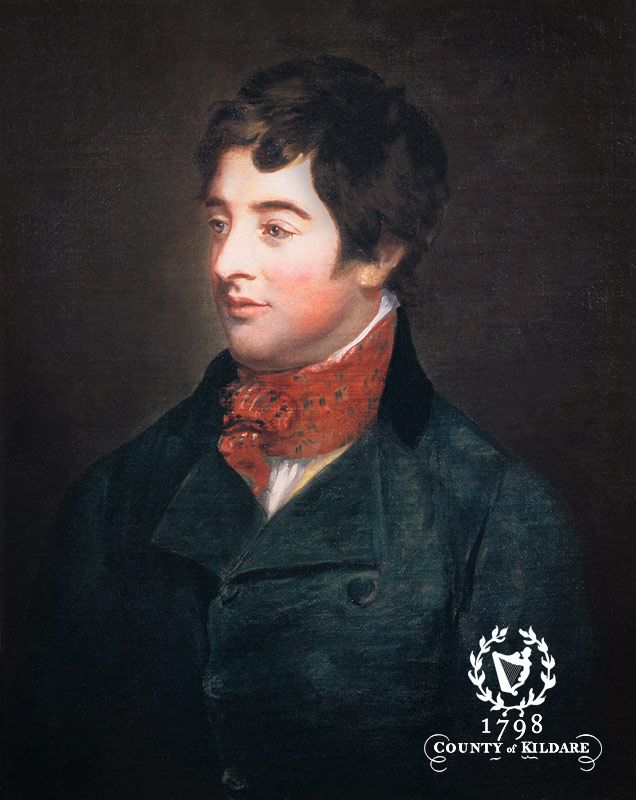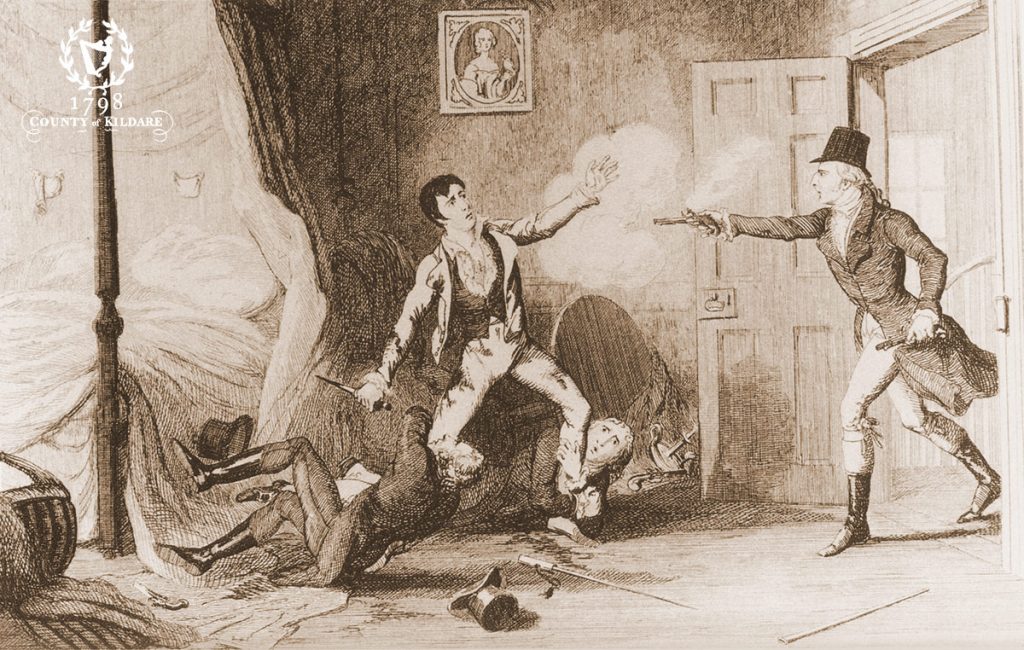Background to Rebellion
Lord Edward Fitzgerald
The United Irish movement in Kildare is generally associated with Lord Edward Fitzgerald. Lord Edward was born in 1763, one of 19 children to James Fitzgerald, 1st Duke of Leinster and his wife Emily Lennox, a daughter of the Duke of Richmond. He was member of parliament for Co. Kildare but later resigned his seat in the Irish parliament after an extraordinary outburst against the government.
He visited France, adopted revolutionary ideas and renounced his title. While in France he married a French girl, Pamela, the alleged illegitimate daughter of the Duke of Orleans. They returned to Ireland but disliked the conservative atmosphere in Dublin. Eventually they moved to Kildare Town where they lived happily for almost two years.

By 1796 Lord Edward had actively joined the United Irishmen and his home at Kildare Lodge became a meeting place for other members.

He had served in the Sussex militia but transferred to two different regiments, desperate to see active service in America. He was wounded at the Battle of Eutaw Springs in 1781. A member of the most distinguished family in Ireland and a competent soldier, he was well suited to his position as military commander of the United Irish Forces. His political beliefs were influenced by French revolutionary ideas. Lord Edward supported the doctrines of enlightened thinkers such as Paine and Rousseau. He believed in Liberty, Equality, Fraternity and The Rights of Man.
Following the arrests of the Leinster Directory Lord Edward went into hiding. The government offered £1000 reward for his arrest and on the 19th of May Lord Edward was arrested at a house in Thomas Street Dublin. During the struggle he was wounded and one of his captors died shortly after. Lord Edward was lodged in Newgate jail where he died on June 4th 1798. One of the few United Irish Leaders with military experience, his capture just before the outbreak of the rebellion was a major blow to the organisation.

